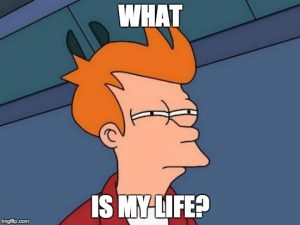The Earthquake in Chile by Heinrich Von Kleist is a German short story that is best known for its question of theodicy and whether there is meaning to all events in life. The people of the city are searching for an answer as for why god would create an earthquake that destroyed buildings and some people. However in the midst of the destruction Joesphe and Jeronimo, a couple in love who were sent to be executed and prisoned for their sins are freed because of this earthquake. Although they are temporarily freed, a mob tries to kill the two lovers and their child but mistakenly kills the wrong child. The twist in events makes people question whether there is an underlying reason for this natural event of the earthquake as well as what it has done to the people living in the city.
During lecture as well as seminar, we discussed how philosophers such as Immanuel Kant believed that natural events have no real meaning yet we live in a world where people constantly want to place explanations onto everything that occurs. The people in the story though, are searching as to why God would create something as evil and destructive as an earthquake. To some, this is god’s displeasure at the sexual promiscuity in the town, but realistically it is clear that the earthquake is nothing more than chance and luck. It is the only valid explanation that the earthquake is just a random natural event that can occur in many parts of the world and at random times, and that god has simply nothing to do with it.
It is understood that the reason people are in constant search for meaning has to do with search for their true selves. To find one’s true self is to project meaningful values that connect with the purpose of living. Finding oneself, is finding meaning to life, and without meaning the purpose of living is often questionable.
I’m just going to leave this blog post with a meme because I’m still trying to figure out whether it is a good thing to believe that everything has meaning or not.

